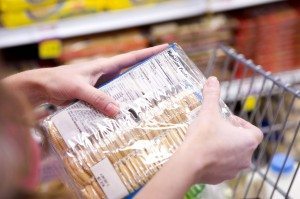Specific restrictions on advertisement
The FSS (Packaging and Labelling)
Regulation, 2011 puts specific restrictions on use of particular words,
declarations, statements or pictorial representations in certain cases
as given below :-
14.1 Labels not to contain reference to Act or rules or regulations contradictory to required particulars:-
No reference of the Act, Rules or Regulations is permitted to be made on the labels.
14.2 Labels not to use words implying recommendations by medical profession: -
The words “recommended by the medical
profession” or any words which suggest that the food is recommended,
prescribed, or approved by medical practitioners or approved for medical
purpose, are not allowed to be mentioned on the labels.
14.3Unauthorized use of words showing imitation prohibited
- The word ‘imitation’ or any word, or words indicating that the article is a substitute for any food, are not to be mentioned on the label
- The fruit syrup, fruit juice, fruit squash, fruit beverages, cordial, crush or any other fruit product which does not contain the prescribed amount of fruit juice or fruit pulp or fruit content shall not be described as a fruit syrup, fruit juice, fruit squash, fruit beverages, cordial, crush or any other fruit product as the case may be.
- The food product which does not contain the specified amount of fruit and is likely to give a false impression to the consumer that the product contains fruit, whether by use of words or fruit picture shall be clearly declared on the label as ‘ADDED(NAME OF THE FRUIT) FLAVOUR’.
- Any food product, which contains only fruit flavours, that shall not be described as a fruit product and the word “ADDED” (NAME OF FRUIT) FLAVOUR shall be declared on the label
- Picture of fruit on the label of non-fruit products like carbonate beverage, synthetic Vinegar Syrups/Sharbats is prohibited.
- The fruit and vegetable product, claimed to be fortified with vitamin C shall contain not less than 40 mgms. of ascorbic acid per 100 gm. of the product.
14.4 ” The word “pure” or any
word or words of the same significance shall not be included in the
label of a package that contains an imitation of any food.
14.5 Labelling prohibitions for Drinking Water (Both Packaged and Mineral Water)
- No claims regarding medicinal effects shall be made
- The name of the locality, or specified place should not be associated with the trade name unless the packaged water is collected from that particular place.
- The use of any statement or of any pictorial device which may create confusion in the mind of the public or in any way mislead the public about the nature, origin, composition, and properties of such waters put on sale is prohibited.
Restriction on advertisement
Advertisement of any food, which is
misleading or contravening the provisions of Food Safety and Standards
Act, or the rules / regulations, is prohibited
Unauthorized use of the words or any
misinterpretation with an intention to pull the sales of the product
will be an offense under the regulations of the FSS act, hence the above
has to be strictly be followed to avoid penalties.

